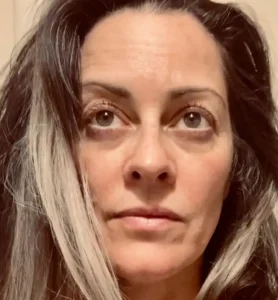(This is a contributed guest column. To be considered as an MJBizDaily guest columnist, please submit your request here.)

We can all relate to that sinking feeling when we find out something isn’t aligned with how we understood it.
In September 2022, my partner (Marq Hayes) and I applied for a Conditional Adult-Use Recreational Dispensary (CAURD) license that would allow us to open a recreational cannabis store (Brown Budda) in New York state.
More than 900 other applicants also applied for the social equity CAURD licenses, an absurdly low turnout when you consider the number of arrests for marijuana-related incidents in the state.
Thirty-two of us in this first cohort were chosen to step into provisional status.
Two-and-a-half years later, we are fully licensed with delivery operations underway, yet the municipality we are (Southampton) in seems to have cold feet about the whole thing and declared we need a special-use permit to operate our delivery program.
They are incorrect; we do not.
We are obliging the Town Council by ceasing operations until they grant us a special-use permit to house cannabis in our world-class location that has been approved by both the state and town for a year already – and where we have a 15-year lease.
The current Town Council is not so psyched with their predecessors’ decision.
When it comes to funding, we’ve entertained quite a few indecent proposals along the way – mostly from millionaires who have the means to fund us but want full ownership instead of loan interest or a reasonable share of equity.
So, when social equity is a part of the equation, is it business as usual? I should hope not.
Indecent proposals, cannabis style
The synopsis of the 1993 film “Indecent Proposal” tells the story of a young, married couple who see a way out of their financial woes when a billionaire proposes to pay them $1 million if the wife spends the night with him.
The couple goes through with it only to find – spoiler alert – that their relationship will never be the same.
In the film, the husband’s lawyer friend from college did the paperwork for a 5% fee and was done with it.
However, the proposals we get for financing all want to take half – if not all – of the company when the license transitions from conditional to general use in 2028 (or when we decide to sell the company).
We’ve easily had more than $50,000 in legal fees and consulting and have managed to own 100% of the company, holding out until the right partnership comes along – or, preferably, we’re able to get an affordable loan that seems to be opening up for cannabis businesses.
The investors who have put offers on the table for the business are far more interested in their gains than those of my partner and me – and we’re the ones who have put in the time and the sweat equity.
Absurd! Did we forget why New York state rolled out its cannabis program with social equity first?
I sure have not.
New York cannabis regulators are trying to help
Enter the Office of Cannabis Management’s newly launched Trade Practices Bureau (TPB).
The TPB was tasked with upholding the design of the medical and two-tiered adult-use markets to create an accessible industry for small and medium-sized businesses that operate among highly funded general-use licensees and multistate operators.
The TPB’s work includes investigations and collaborations to hold accountable those who undermine New York’s public-interest goals in cannabis regulation, including predatory lending, fraudulent reporting and deceptive business practices.
As CAURD licensees struggle to obtain real estate and financing without losing their shirts, those with capital are buying up licenses against the intentions of the equity program.
Licensees already proved during the application process that they are qualified to own and operate their businesses.
Our business, like all businesses, needs capital to function.
Our revenue-generating business has been asked to wait, leaving us financially strapped and left to consider indecent proposals, cannabis style.
Social equity is a societal issue.
If you are entering or already participating in the cannabis market, I hope you look deeply into your reasons and find something other than financial gain.
My advice is to ask a licensee what they need and make a decent proposal based on what you hear.
Kim Stetz is a licensed master social worker (LMSW) in New York state and a pioneer who co-founded the Brown Budda, the first licensed marijuana store in Southampton, New York, a business that is both woman- and Black-owned. She can be reached at ks@brownbuddanewyork.com.
Subscribe to the MJBiz Factbook
Exclusive industry data and analysis to help you make informed business decisions and avoid costly missteps. All the facts, none of the hype.
What you will get:
- Monthly and quarterly updates, with new data & insights
- Financial forecasts + capital investment trends
- State-by-state guide to regulations, taxes & market opportunities
- Annual survey of cannabis businesses
- Consumer insights
- And more!
Medical Disclaimer:
The information provided in these blog posts is intended for general informational and educational purposes only. It is not a substitute for professional medical advice, diagnosis, or treatment. Always seek the advice of your physician or other qualified healthcare provider with any questions you may have regarding a medical condition. The use of any information provided in these blog posts is solely at your own risk. The authors and the website do not recommend or endorse any specific products, treatments, or procedures mentioned. Reliance on any information in these blog posts is solely at your own discretion.






